Why Not the Name Jehovah?
There are many theories of how to say the divine name of our Creator from the Tetragrammaton—'YHWH'. One of the most popular is the name Jehovah. The Christian translators of the Bible perpetuated a corruption and perversion of scripture by following the Jewish scribes who, for controversial reasons, disguised the name of our Creator, which is a blatant disregard for the truth and the commandment to "not add nor take away" from the word of YaHuWaH as recorded in Deuteronomy 4:2.
Ask most believers what the name of our heavenly Father is, and they probably will say Jehovah. Ask them for some proof of this, and they will either point to traditional usage or refer you to some Old Testament English Bible version.
Surprisingly, the name of our heavenly Father is not Jehovah and never was. The history of Jehovah, which some encyclopaedias call erroneous and which many Bible scholars agree is not accurate, is quite eye-opening...
In the oldest text of the Bible—the ancient Hebrew script—the sacred name is represented by four Hebrew letters, which in English are—'YHWH'. The ancient Hebrew alphabet had no vowels. To indicate vowels, scribes or copyists put points above or below the letters. Experts in Jewish law decided to hide this name to make certain it would not be spoken. Therefore, when the four letters of the Tetragrammaton appeared in the text, scribes 'pointed' it with substitution vowels for the Hebrew word 'Adonai' (meaning 'Lord'), which was then read as 'Adonai' instead of the sacred name YaHuWaH.
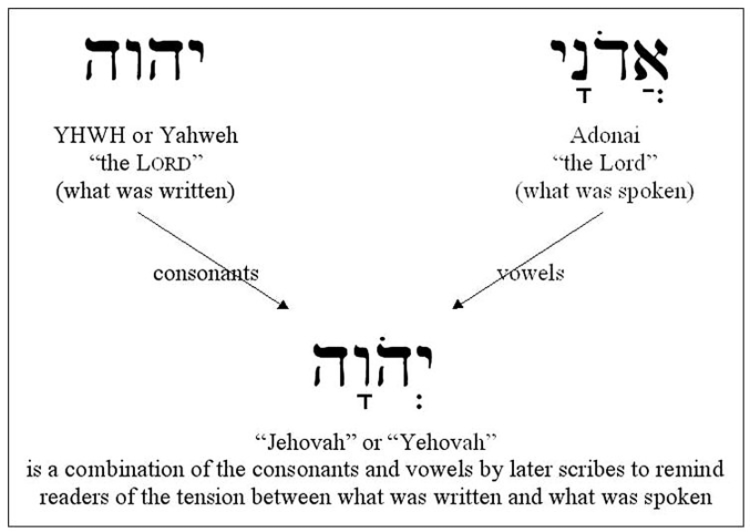
"HalleluYah", which means "Praise Yah", is one of the most well-known terms in the world and may be found in the oldest version of the Bible. It should be noted that the short or poetic form is not spelt Yeh, but rather Yah. The letter J has the sound of Y (the Hebrew had no J sound), yet the obsolete form 'Hallelujah' is often seen. All languages have the same pronunciation of HalleluYah, which is heard all around the world.
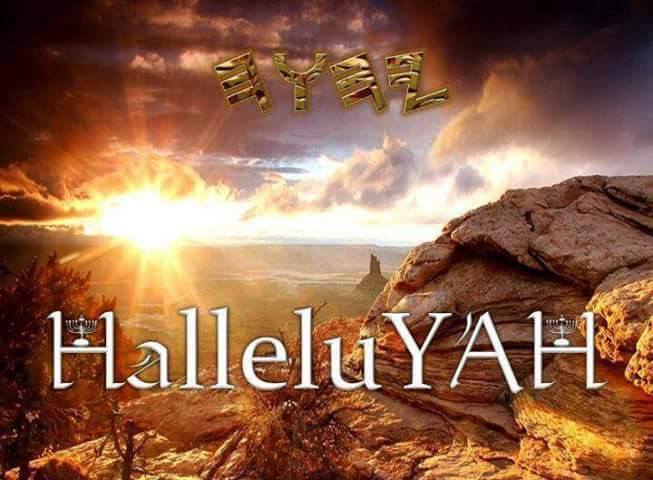
The first converts to the Saviour were Hebrew Israelites that included Jews from the tribe of Judah. As more Pagan converts were accepted, the assembly took on a Pagan flavour with Pagan customs and practices. These pagans generally did not understand Hebrew. In fact, at the time of Emperor Constantine, there was a strong anti-Jewish bias, and for the most part, these Pagan converts wanted nothing to do with anything Jewish, and the word 'Judaiser' was coined for any Christian who desired to lean towards the Hebrew roots of the faith and was greatly persecuted or murdered for it. When the Old Testament was translated into Greek (known as the Septuagint pictured below), it became the standard text for the early assembly, now overwhelmed by pagan converts, who by then spoke Latin or Greek.

Because the Greek 'Pi' resembled the Hebrew 'He', readers who were unfamiliar with Hebrew mispronounced the Hebrew Tetragrammaton 'Pipi' as the Greek 'Pi'. The Latin translations became the standard for the Roman church, and the Hebrew Tetragrammaton was represented by the Latin letters IHVH. At the time, the vowel I was the same as the letter Y. The letter V sounded like 'W'oo'.
The capital I soon received a tail—a change popularised by Dutch printers—and the Tetragrammaton began to appear as JHVH. Although it looked like our J, the Latin letter J was pronounced as an I, as in police or machine. Names do not change from language to language.
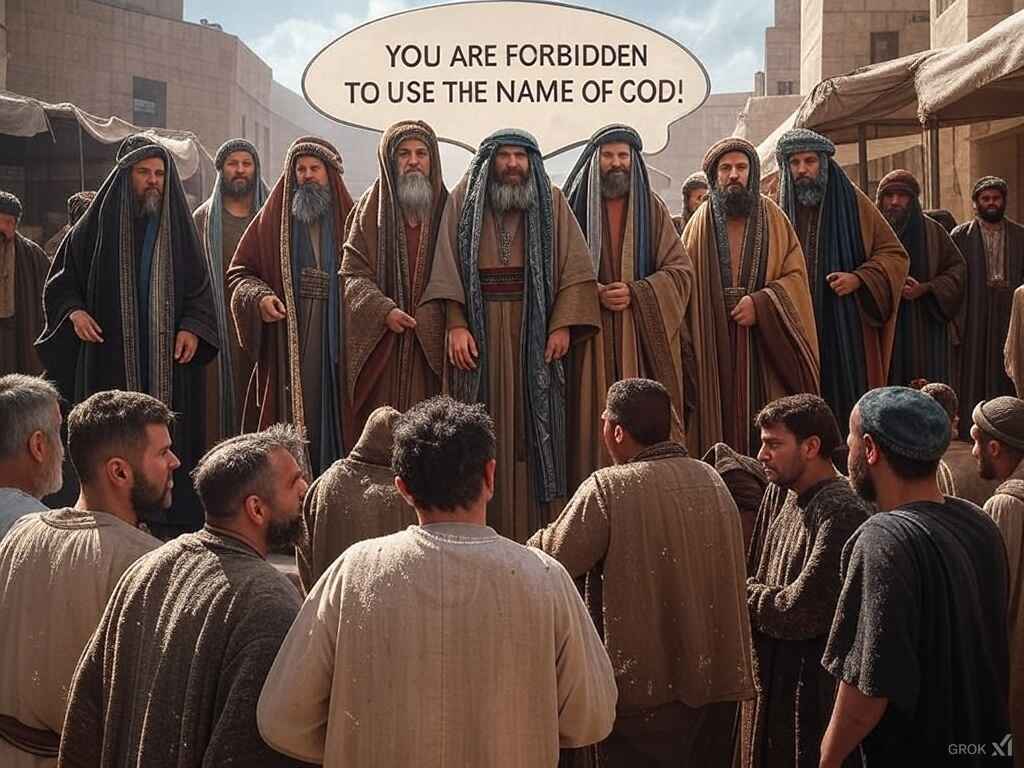
Names are transliterated (given the same pronunciation) by using corresponding letters from a certain alphabet. YaHuWaH's name remains consistent across languages. Even though the Tetragrammaton appears in Latin writings as JHVH (pronounced as YHWH), the Hebrew vowel pointing was for Adonai. Furthermore, the Jewish scribes made the initial vowel 'a' correspond to our short letter 'e' as in 'met', lest anyone reading the Hebrew accidentally blurt out the first half of the Sacred Name 'Yah', hence the 'e' in Jehovah.
Even today, those who are conversant with Hebrew refer to the Tetragrammaton as the "ineffable / unpronounceable name" because of the incorrect Adonai vowel pointing. It cannot be pronounced with the Adonai vowel pointing! The translators followed the Jewish practice of substituting the vowels of Adonai after being influenced by them. Thus, they wrote 'Jehovah' in an illiterate manner. In the introduction to his Bible, Dr J. B. Rotherham says the following about Jehovah:
"Erroneously written and pronounced Jehovah, which is merely a combination of the sacred Tetragrammaton and the vowels in the Hebrew word for Lord, substituted by the Jews for JHVH because they shrank from pronouncing The Name, owing to an old misconception of the two passages—Ex. 20:7 and Lev. 24:16... To give the name JHVH the vowels of the word for Lord [Heb. Adonai] is about as hybrid a combination as it would be to spell the name Germany with the vowels in the name Portugal—viz, Gormuna. The monstrous combination Jehovah is not older than about U"
Rotherham was ahead of his time, but now many current dictionaries and encyclopaedias admit the name Jehovah is wrong and that it properly should read 'U'.
The Encyclopaedia Britannica (Micropedia, vol. 10) says:
"Yahuwah—the personal name of the [El] of the Israelites... The Masoretes—Jewish biblical scholars of the Middle Ages—replaced the vowel signs that had appeared above or beneath the consonants of YHWH with the vowel signs of Adonai or Elohim. Thus the artificial name Jehovah (YeHoWaH) came into being. Although Christian scholars after the Renaissance and Reformation periods used the term Jehovah for YHWH, in the 19th and 20th centuries biblical scholars again began to use the form Yahuwah; thus, this pronunciation of the Tetragrammaton was never really lost. Greek transcriptions also indicate that YHWH should be pronounced Yahuwah."
Interestingly, even the Jehovah's Witnesses acknowledge that the name Jehovah is improper. Their book 'Let Your Name Be Sanctified' freely admits on pages 16 and 18 that YaHuWaH is the superior translation of the Tetragrammaton. This book has lately been withdrawn. However, in the preface of their 'The Kingdom Interlinear Translation of the Greek Scriptures', we find on page 23 the following admission:
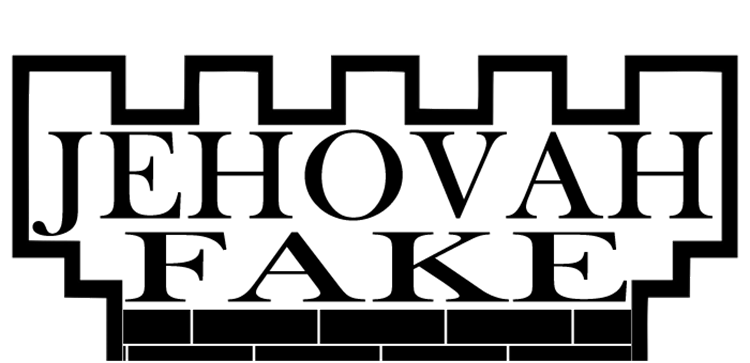
"While inclining to view the pronunciation 'Yahuwah' as the more correct way, we have retained the form 'Jehovah' because of people's familiarity with it since the 14th century. Moreover, it preserves equally with other forms the four letters of the Tetragrammaton JHVH."
We cannot let tradition lead us to call our heavenly Father by a wrong name! Much scholarly proof is now available to show that Jehovah is wrong. We are to walk in all the truth we are given so that YaHuWaH will give us even more light. Our purpose is not to follow erroneous traditions of men, as pointed out by Yahushua the Messiah in Mark Chapter 7 Verse 7:
"In vain do they worship me, teaching [for] doctrines the commandments of men."
Many names in the Bible begin with 'Je' which should begin with 'Y'. Notice in the Hebrew dictionary of Strong's No. 3050 the entry 'Yah,' a contraction for 3068 (the Tetragrammaton, the Sacred Name). Also, it appears in names like Isaiah (IsaYah), Jeremiah (YeremYah), Zephaniah (ZephanYAH), Nehemiah (NehemYAH), and other names ending in 'iah.'
In Psalm 68:4 of the King James Version, the poetic or abbreviated version of His name, "Yah", has been preserved by translators. The most intriguing part of Strong's Exhaustive Concordance is the prefix of the word Jehovah, which reveals the name's inaccuracy. In order to conceal the name, the 'A' was altered to 'E', and the initial half of the sacred name 'Yah' was changed to 'Jeh' as the 'J' developed.
The suffix 'hovah' is numbered 1943 in Strong's Hebrew Dictionary and means 'ruin' or mischief'. It is a variant of Strong's no. 1942 'havvah', which translates as 'calamity, iniquity, mischief, mischievous (thing), naughtiness, naughty, noisome, perverse thing, substance, terrible wickedness!'
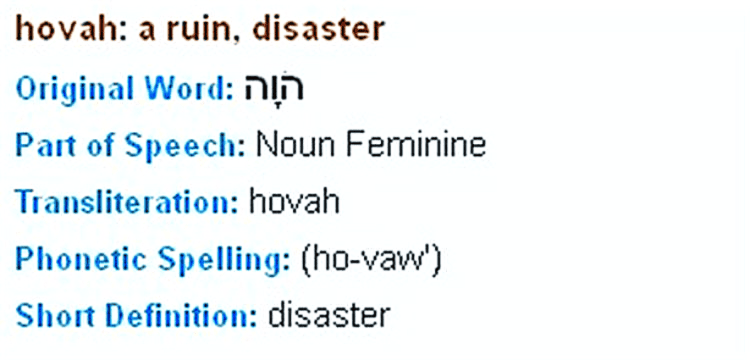
This demonstrates the foolishness of referring to the One we worship—the Creator of the universe—as Jehovah. Because when we invoke this hybrid name, we are actually beseeching a mighty one whose name means "The One Who creates ruin, creates mischief, creates calamity, creates iniquity, creates naughtiness, creates perverse things, and creates very wickedness." The Adversary/Satan must be having a field day when humans incorrectly refer to YaHuWaH as Je-hovah, a name that perfectly describes Satan himself as the Destroyer!
Knowing its Hebrew meaning, how can we possibly call our heavenly Father 'Jehovah'? How much more glorious it is to call Him YaHuWaH! His name, YaHuWaH, means He Who will become whatever we, His people, need of Him at that time. He will become our Healer, Provider, Protector, Sustenance, Guide, Shepherd, Keeper, etc., as well as our Saviour through His Son Yahushua. Call upon the name YaHuWaH, which is revealed to those with whom He is in a covenant relationship. He will be whatever you need of Him and will joyfully fulfil the meaning of His name in your life! "HalleluYAH!"
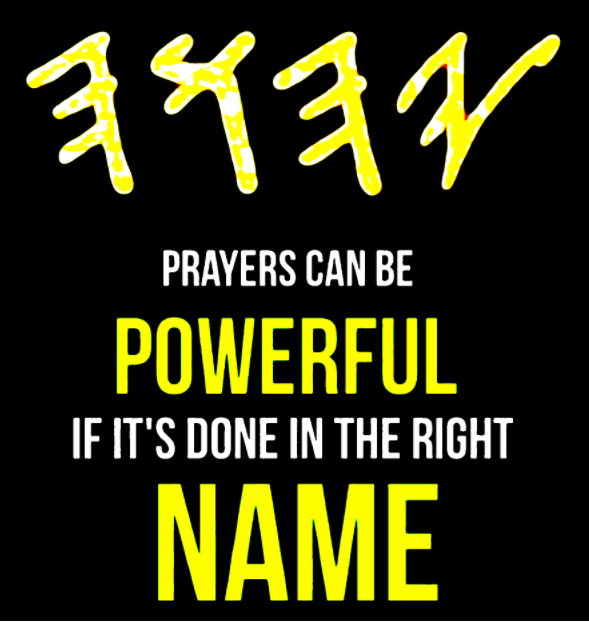
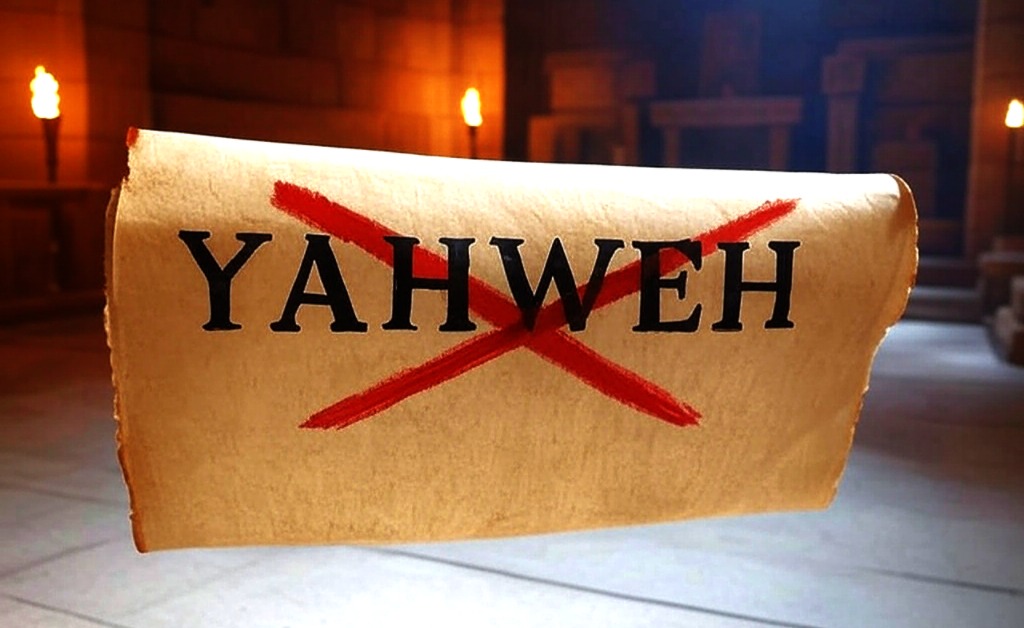
Copyright © Yahuwah.co.uk 2025





